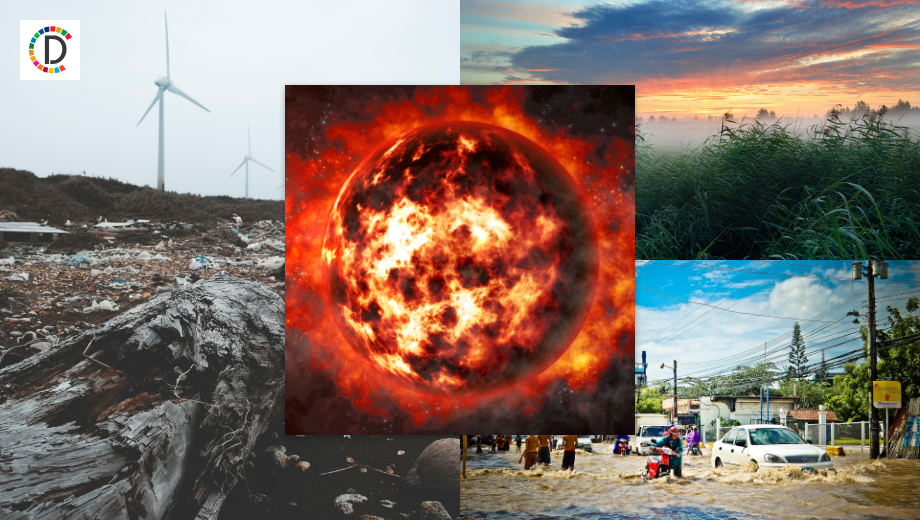German ministers call on China, Gulf states to contribute climate finance

China and other big-polluting developing countries should pay more to help poor states cope with climate change, Germany's foreign and development ministers said on Thursday, as countries prepare for U.N. negotiations on a new climate finance goal.
Rich developed countries, which are obliged by treaties to contribute to help poor countries cope with climate change, are hoping to persuade countries that are so far exempt, such as China and the wealthy, high-emitting Gulf states, to join them. "I strongly urge those who can to join our effort, and particularly the strongest polluters of today, particularly looking at the G20," Annalena Baerbock said at the opening of a climate conference in Berlin, referring to the Group of 20 which includes both rich countries and big developing economies.
At a panel on the sidelines of the conference, Germany's Development Minister Svenja Schulze said: "Germany will contribute, we deliver our fair share, but we also ask other ones to do so." "It's the time of taking action and we need more countries that take their fair share - all the ones who are big emitters, also the Gulf states, also China, we all need to do more."
Germany, which houses the U.N. body overseeing global climate change treaties, hosts the annual Petersberg conferences at which countries meet to discuss the agenda of COP climate change summits held later in the year. Climate finance needs to rise sharply to $5 trillion a year globally by 2030 to fund measures to fight climate change, according to 2021 scientists' estimates.
Countries are preparing to negotiate a new target at the U.N. COP29 climate summit in November, for how much climate finance wealthy nations will contribute to poorer countries each year. The list of two-dozen states obliged by U.N. agreements to contribute is made up of countries that had already become industrialised decades ago. The world's top polluter China, the Gulf states, Brazil and other big developing country emitters are excluded.
The Chinese Ministry of Ecology and Environment could not be immediately reached for comment. Beijing has repeatedly said developed countries should contribute the bulk of the finance required to help poor nations decarbonise, as part of the principle of "common but differentiated responsibilities". Baerbock said developing countries need over $2 trillion per year for ecological transition, half of which must come from sources within developing countries and the other half from international financial flows.
"The crucial question now is for us ... How can we build a new international financial system that mobilizes $1 trillion annually in international finance for developing countries?" Baerbock said. Germany has met and will keep its climate financial commitments for developing countries despite budget constraints, the foreign minister said, confirming Berlin's climate finance goal of 6 billion euros per year from 2025.
(This story has not been edited by Devdiscourse staff and is auto-generated from a syndicated feed.)
ALSO READ
Rafael Nadal Set to Make Laver Cup Farewell Appearance in Berlin
Berlin calls China espionage arrest potential attack on EU democracy
World News Roundup: Migrants drown in Channel, Sunak says nothing will stop Rwanda policy; Sixteen dead, 28 missing after boat capsizes off Djibouti coast - U.N. agency and more
Sixteen dead, 28 missing after boat capsizes off Djibouti coast - U.N. agency
Berlin police clear pro-Palestinian camp from parliament lawn










